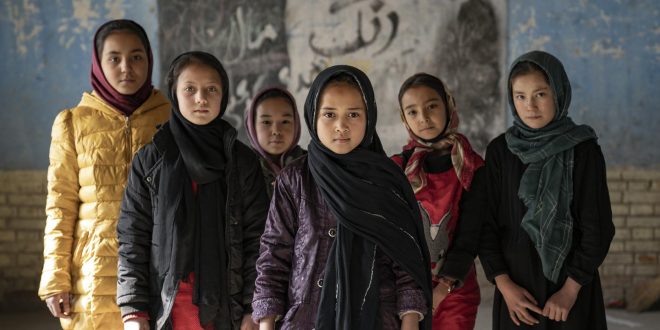AT News
KABUL – A recent study by Care International has revealed a shocking reality in Afghanistan, where a staggering 80% of school-aged girls and young women are being deprived of education. This alarming statistic makes Afghanistan the only country in the world to enforce a ban on the education of girls and women, resulting in a substantial economic toll of approximately $5.4 billion.
The report underlines that at present, 2.5 million school-aged Afghan girls and young women are out of school, constituting 80% of their demographic. This disheartening situation has persisted for over 700 days since schools closed their doors to female students beyond the sixth grade. This prolonged closure has left the educational future of these young women hanging in uncertainty.
The plight of these girls reflects the profound challenges that Afghan society is grappling with. The absence of clarity regarding the resumption of their studies not only hinders their personal growth but also perpetuates a cycle of gender inequality that impedes the progress of the entire nation.
Since the Taliban gained control of Afghanistan in August 2021, a series of regressive measures have been taken against women’s rights. Initially, girls were prohibited from advancing beyond the sixth grade, and in December 2022, an even more restrictive measure was imposed, effectively blocking women’s access to higher education at universities.
These restrictions have been compounded by additional distressing actions, such as forbidding women from interacting with international aid agencies, including renowned organizations like the United Nations. Recently, this trend escalated with the sudden closure of women’s beauty salons across the country, resulting in the loss of over 60,000 job opportunities for women.
Despite widespread criticism from international and domestic entities, the Taliban leadership remains resolute in curtailing women’s rights, whether in education or employment. This stance has triggered global condemnation, underscoring the urgent need for sustained advocacy and efforts to reinstate the rights of Afghan women.
 Afghanistan Times
Afghanistan Times




